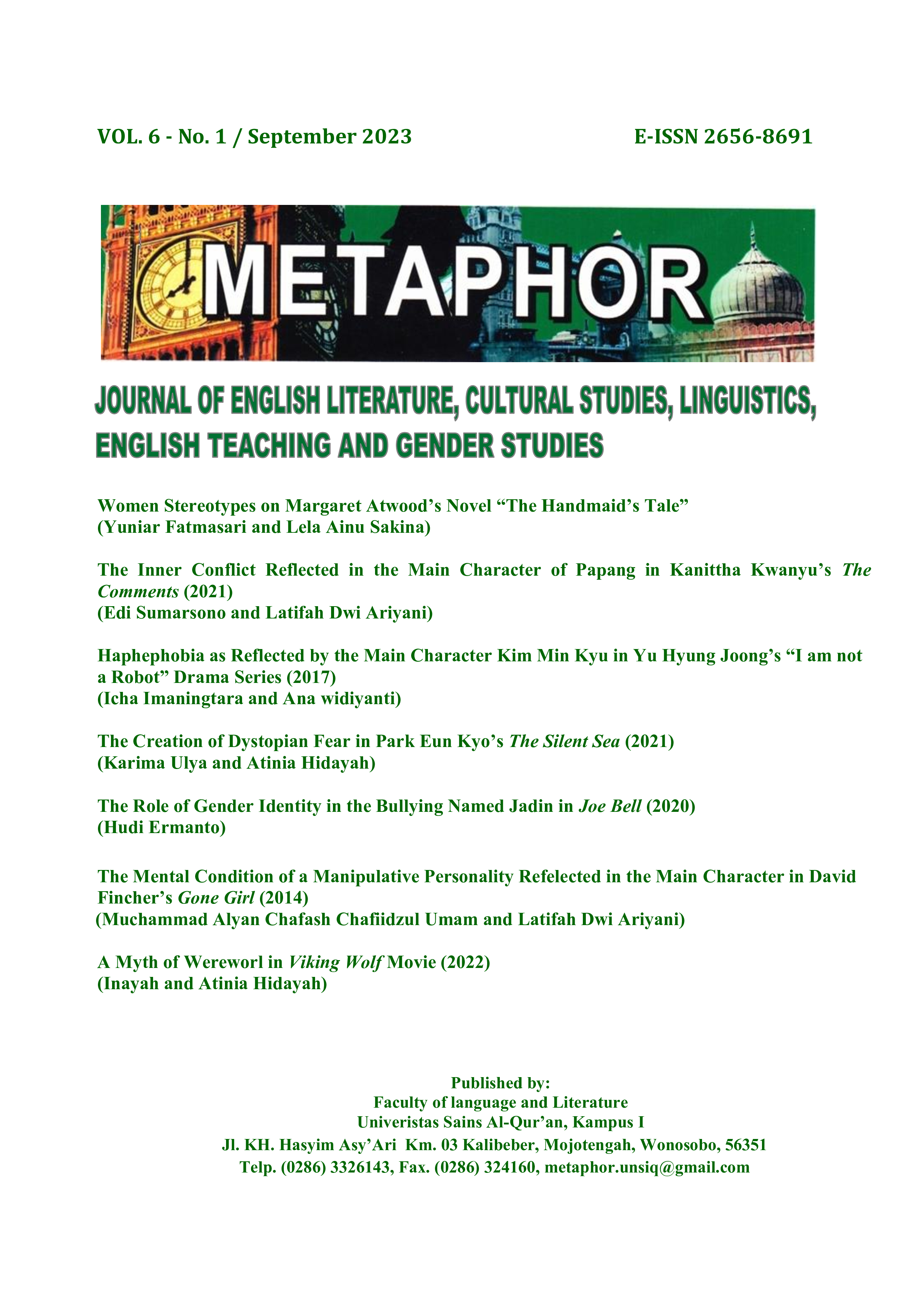The Creation of Dystopian Fear in Park Eun Kyo’s The Silent Sea (2021)
Keywords:
Dystopian Fear, Drought, AquaphobiaAbstract
Dystopian is a dark side reflection of human society. This study aims to investigate the dystopian fear in series “The Silent Sea” (2021) written by Park Eun Kyo. The data were collected from the subtitles and focus on the dystopian fears and the effects on characters that appeared in the series. The present study employs M. Keith Booker’s theory (1994) as its analytical tools. The analysis shows that dystopian issues is always highly related to the issues in real world, even though the setting of time and place for dystopian world is far distant from nowdays society, but the real reference of dystopian issues are concreete and nera-at-hand. The analysis also reveals that in the series citizens lived below moderation and they also contributed to the existence of rebellion. However, because of how strong government impact in dystopian world is, all kind of attempts against the government is impossible to be achieved. This study is expected to provide an alternative analysis and reference to literary works belong to dystopian genre.
References
American Psychiatric Association. (2002). Diagnostic and Statistical Manual of Mental Disorders: DSM-5-TR. American Psychiatric Association Publishing
Booker, M. K. (1994). The dystopian impulse in modern literature: fiction as social criticism. London: Greenwood Press.
Caprio, M. (2011). Japanese Assimilation Policies in Colonial Korea, 1910-1945. Seattle: University of Washington Press.
Creswell, J. W. (1994). Research Design: Qualitative and Quantitative Research. Thousand Oaks: CA: Sage.
Drought. (n.d.). Retrieved on May 9, 2023, from World Health Organization: https://www.who.int/health-topics/drought/#tab=tab_1
Gidding, R., & Shelby, K. (2001). Classic Serial on Television and Radio. UK: Palgrave MacMillan.
H.M. Johnson. (1960). Sociology: A Systematic Introduction. Under the General Editorship of Robert K. Merton. New York, Harcout, Brace and Company.
Kim, C. K. (2018). “Monstrous Science: The Great Monster Yonggari (1967) and Cold War Science in 1960s South Korea ''. The Journal of Korean Studies, 397-421.
Kwak, Y. S. (2020, April 2). Science Fiction: The Golden Age of Korea. Retrieved on October 10, 2022, from The Korea Times: https://program.koreatimes.co.kr/www/culture/2022/08/142_287246.html#:~:text=Whether%20or%20not%20we%20are%20witnessing%20a%20true,good%20works%20that%20stand%20the%20test%20of%20time
Merriam-Webster. (n.d.). Drama. In Merriam-Webster.com dictionary. Retrieved on July 10, 2022, from https://www.merriam-webster.com/dictionary/drama
Merriam-Webster. (n.d.). Dystopian. In Merriam-Webster.com dictionary. Retrieved on July 10, 2022, from https://www.merriam-webster.com/dictionary/dystopian.



